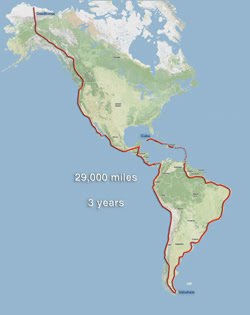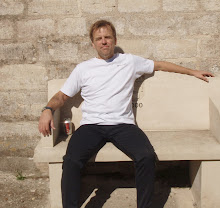It's not only the much-maligned seafood lovers of Japan and East Asia that drive the increasingly desperate fishing industries to chase down their prey in newer, more imaginative ways. Consumers from the western world too must, of course, bear a significant responsibility for the demise of once abundant species from Atlantic, Icelandic and Baltic fishing grounds. There is, after all, only one ocean and we are eating our way through it - literally - from top to bottom, and it's killing us . . . un-noticeably slowly, but certainly surely.
Cod, Monkfish, Halibut and Plaice, to name but a few of the most serious cases, have been trawled from the seas around our island in unsustainable numbers for too many years with too little complaint, perhaps to the point of no return. Instead, much of the fish you'll find in your local chippy or supermarket is now taken from Icelandic or Baltic waters, so-called sustainably managed fisheries. But for how long and who's doing the managing? Where will we find our favourite fillet when we've exhausted these new supplies? Larger boats, with inevitable short-sightedness, will trawl smaller waters for lesser fish of fewer species. Will our governments continue to subsidise their livelihoods when we're paying £15 for a portion of cod and chips? We're taxing our own demise.
Many supermarkets offer trendier options such as Swordfish, Snapper and Marlin, vitally important predator species that are facing imminent virtual extinction in large areas of the world. Yet, there they lay, sliced up on beds of clean white ice behind the glass counter next to the expanding selections of squid and jellyfish (get used to it!). If prime cuts of Panda belly were laid out waiting for the frying pan, shoppers would be sidestepping placarded protesters chaining themselves to the doors and leafleting every windscreen wiper.
The vital piece of information that many of us are ignoring is that the imminent removal of each species is about more than just not having them served up in a nice beer batter with some chunky chips . . . it's about the very air we breathe. The removal of predator fish and near extinction of primary food fish ultimately and irretrievably leads to acidifying oceans and global warming.
If you give even the smallest of damns about your planet or just your fish, ask where it came from. While there's a market, unsustainable and unregulated industrial fishing methods will continue, somewhere, somehow. Check the label. Take an interest. Ask where the fish were caught, and just as importantly HOW they were caught. It matters! It's a simple measure that everybody can take at no cost and will have a positive impact on our ecosystem.
Labels such as 'line caught' may conjure up images of woolly-sweatered boat anglers with a rod and a bucket of worms but in truth usually means 'long-lining', an incredibly indiscriminate method of fishing which takes thousands of tonnes of illegal bycatch. Sustainable means 'pole-caught', 'seine-netted' or 'midwater trawled'. UN-sustainable means 'line caught', 'dredged' or, perhaps worst of all, 'bottom trawled' a remarkably efficient method of mass destruction, turning sea beds into muddy bottomed wastelands, violently devastating every iota of life in the path of the trawl beam.
Jelly fish continue to thrive.
Tuesday, 18 August 2009
Subscribe to:
Post Comments (Atom)



No comments:
Post a Comment